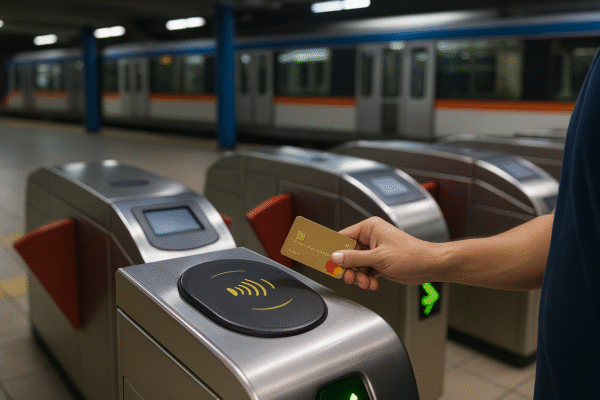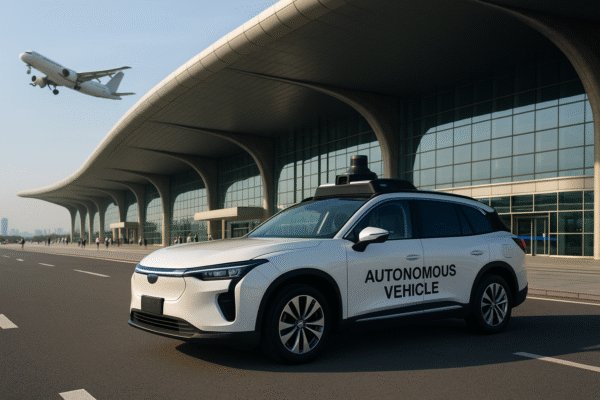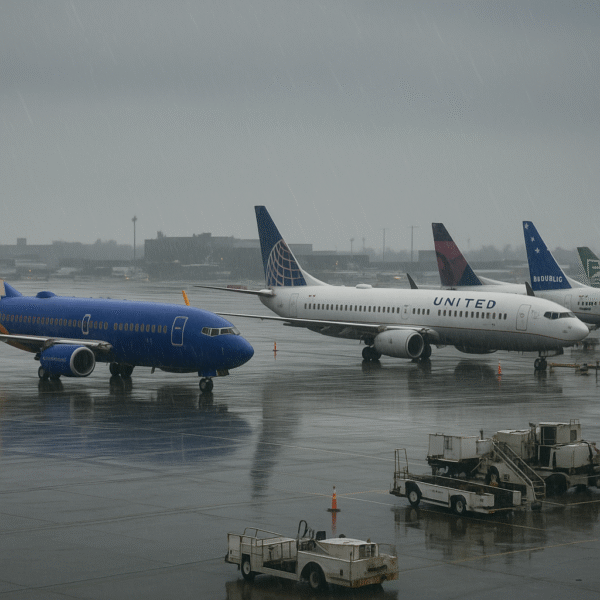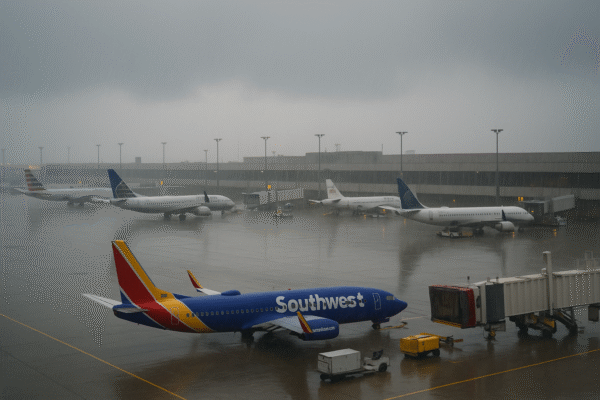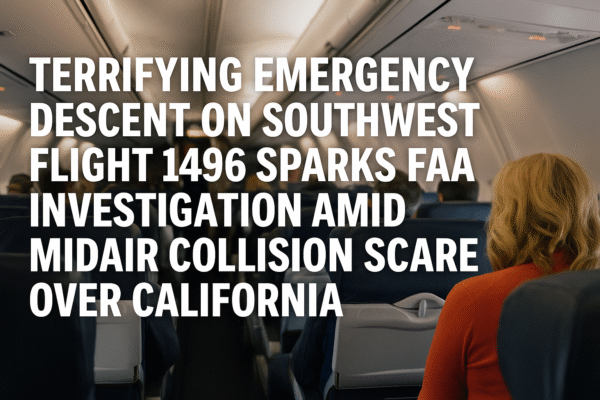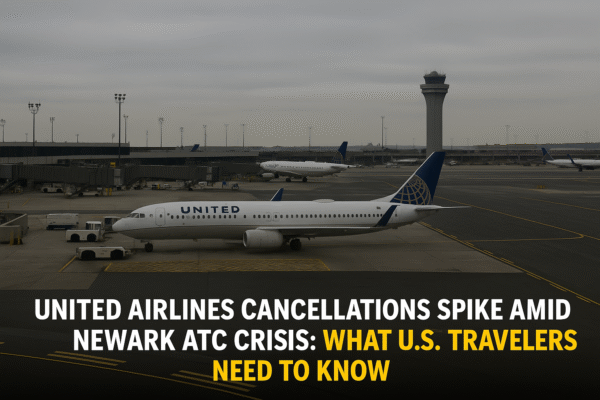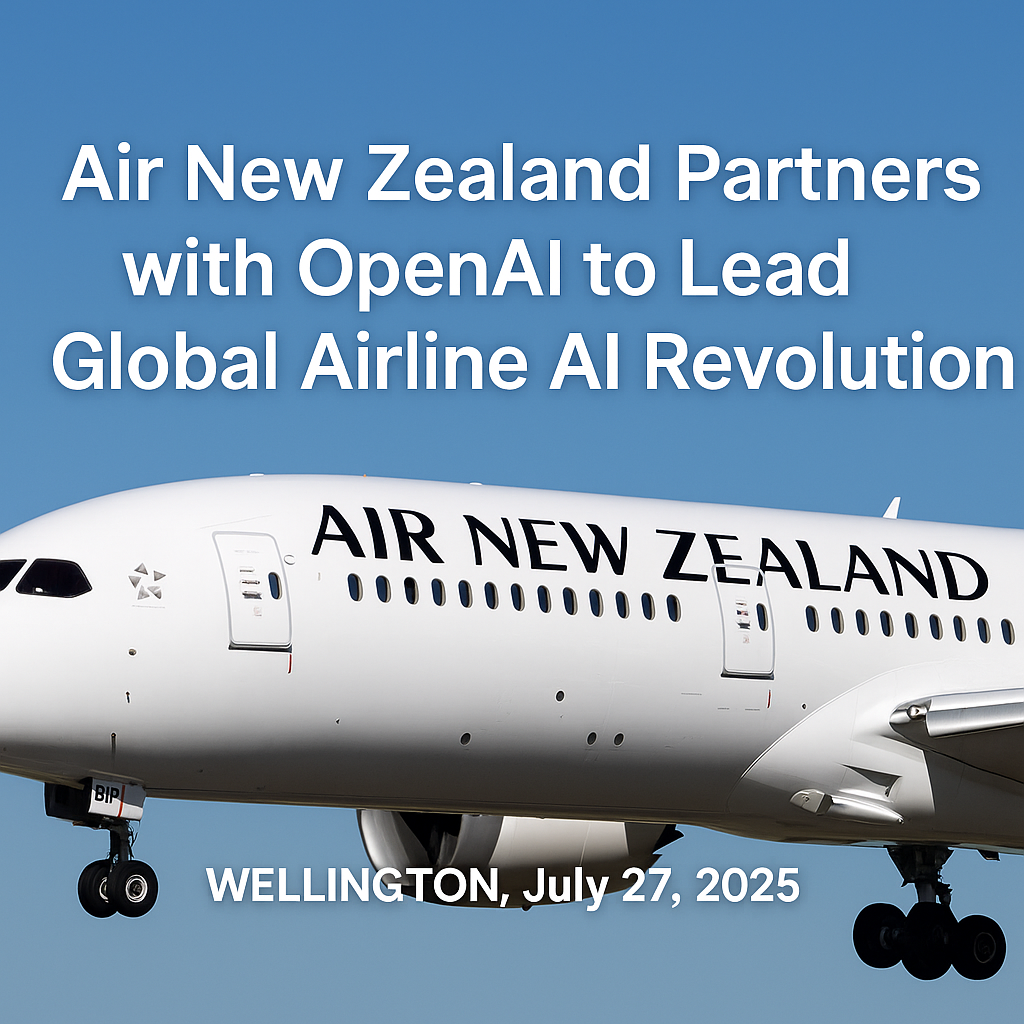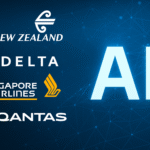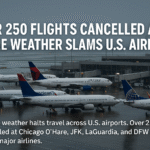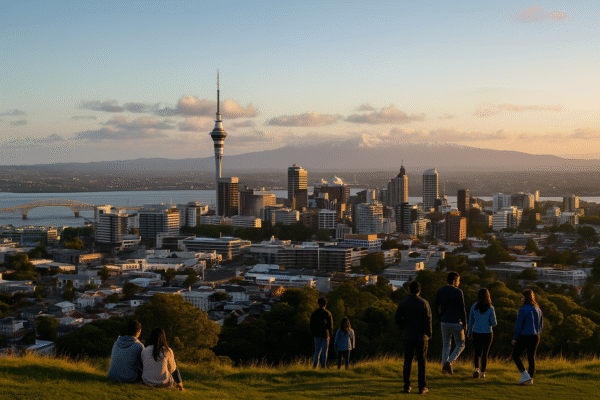WELLINGTON, July 27, 2025 — Air New Zealand has taken a significant leap in global airline innovation by becoming the first carrier in Aotearoa to partner with OpenAI, marking a milestone in its digital transformation strategy. The collaboration, announced earlier this month, positions the airline among global leaders like Delta Air Lines, American Airlines, British Airways, and Virgin Atlantic that are integrating artificial intelligence (AI) into core operations to enhance customer service, improve efficiency, and future-proof airline infrastructure.
Through this partnership, Air New Zealand will deploy OpenAI’s enterprise-grade tools, including ChatGPT Enterprise, across its 3,500-strong corporate workforce. This technology aims to improve passenger self-service options, internal workflows, predictive maintenance, and data-driven decision-making, creating a smarter and more responsive airline environment.
Pioneering AI-Powered Customer Service and Operations
The cornerstone of this initiative is the rollout of “Companion AI,” Air New Zealand’s in-house platform powered by OpenAI’s GPT models. With over 1,500 customized GPTs developed for internal functions, the airline is transforming how employees handle tasks like reporting, scheduling, and analytics—cutting response times and enabling faster service delivery.
Passengers will benefit from AI-enhanced chatbots capable of handling complex queries, booking assistance, and real-time flight updates. These self-service tools, designed with natural language understanding, will offer travelers personalized, round-the-clock support, reducing dependence on human agents and elevating the overall digital experience.
“AI is no longer a futuristic concept—it’s a core part of how we’re reshaping the future of aviation for both customers and staff,” said Nikhil Ravishankar, Chief Digital Officer at Air New Zealand.
AI in Maintenance and Predictive Operations
Operational resilience is another key area where Air New Zealand is leveraging AI. By integrating real-time aircraft sensor data into predictive models, the airline can anticipate mechanical issues before they escalate, minimizing delays and improving safety. This proactive maintenance approach is also expected to reduce costs and enhance fleet reliability.
AI-driven flight optimization tools will assist with route planning, crew scheduling, and fuel efficiency—critical for both environmental goals and profit margins. These applications build on industry trends that see AI as a strategic asset for operational excellence.
Global Airline Trends: A Worldwide AI Movement
Air New Zealand’s AI adoption echoes a broader global movement among airlines:
- Delta Air Lines (Atlanta): Pioneering dynamic pricing with AI from partners like Fetcherr, Delta is using AI for predictive delays, route optimization, and customer chatbots.
- American Airlines (Dallas): AI is central to crew management, demand forecasting, and proactive aircraft maintenance—reducing disruption and improving passenger experience.
- British Airways (London): Using AI-powered “Mission Control” to analyze weather and traffic data for real-time schedule adjustments and fuel-saving route planning.
- Virgin Atlantic (London): In partnership with Tata Consultancy Services (TCS), Virgin is building a digital core to enhance customer loyalty and operational efficiency.
- Volaris (Mexico City): This low-cost carrier uses Conversocial’s AI automation to manage customer interactions across digital channels, improving scalability and support speed.
- Emirates (Dubai): Focused on AI for inflight personalization and sustainable flight paths using weather analytics and air traffic modeling.
- JetBlue (New York): Using AI for tailored customer experiences and revenue optimization through dynamic pricing and demand forecasting.
- United Airlines (Chicago): Introduced “Every Flight Has a Story,” providing passengers with personalized flight status updates using AI.
- Air India (New Delhi): AI-powered analytics are being used for route optimization, maintenance planning, and personalized passenger services.
- Southwest Airlines (Dallas): Following its 2022 disruption, Southwest now invests in AI to improve schedule flexibility and real-time resource management.
Building a Future of Ethical and Scalable AI in Aviation
In addition to functionality, Air New Zealand emphasizes ethical AI adoption. The airline has committed to transparency, governance, and data protection, ensuring AI applications respect customer privacy and comply with global data standards. The responsible deployment of OpenAI’s APIs also allows for scalable innovation across departments—from marketing to operations and customer engagement.
The airline is also exploring future use cases with OpenAI’s advanced GPT models, including specialized AI assistants that can support engineering, customer feedback analysis, and flight disruption management.
What This Means for the Future of Air Travel
As more airlines follow suit, AI is becoming an industry essential, not a luxury. From real-time communication tools to automated rebooking systems, AI is reshaping the travel journey. Passengers can expect more personalized service, fewer disruptions, and seamless digital experiences from check-in to arrival.
For Air New Zealand, this transformation is more than tech adoption—it’s a strategic pivot toward long-term resilience and customer satisfaction. With AI tools now woven into the airline’s fabric, the skies ahead are not just smarter—they’re smoother, safer, and more sustainable.
Conclusion: A Blueprint for AI in Global Aviation
Air New Zealand’s OpenAI partnership places it firmly among global aviation innovators. As digital transformation accelerates across the industry, AI is the common thread binding customer care, efficiency, sustainability, and operational excellence.
The airline’s vision—powered by next-generation AI—could soon become a blueprint for others to follow. As the aviation sector adapts to a fast-changing technological landscape, carriers embracing AI today will shape the travel experience of tomorrow.
For more travel news like this, keep reading Global Travel Wire

